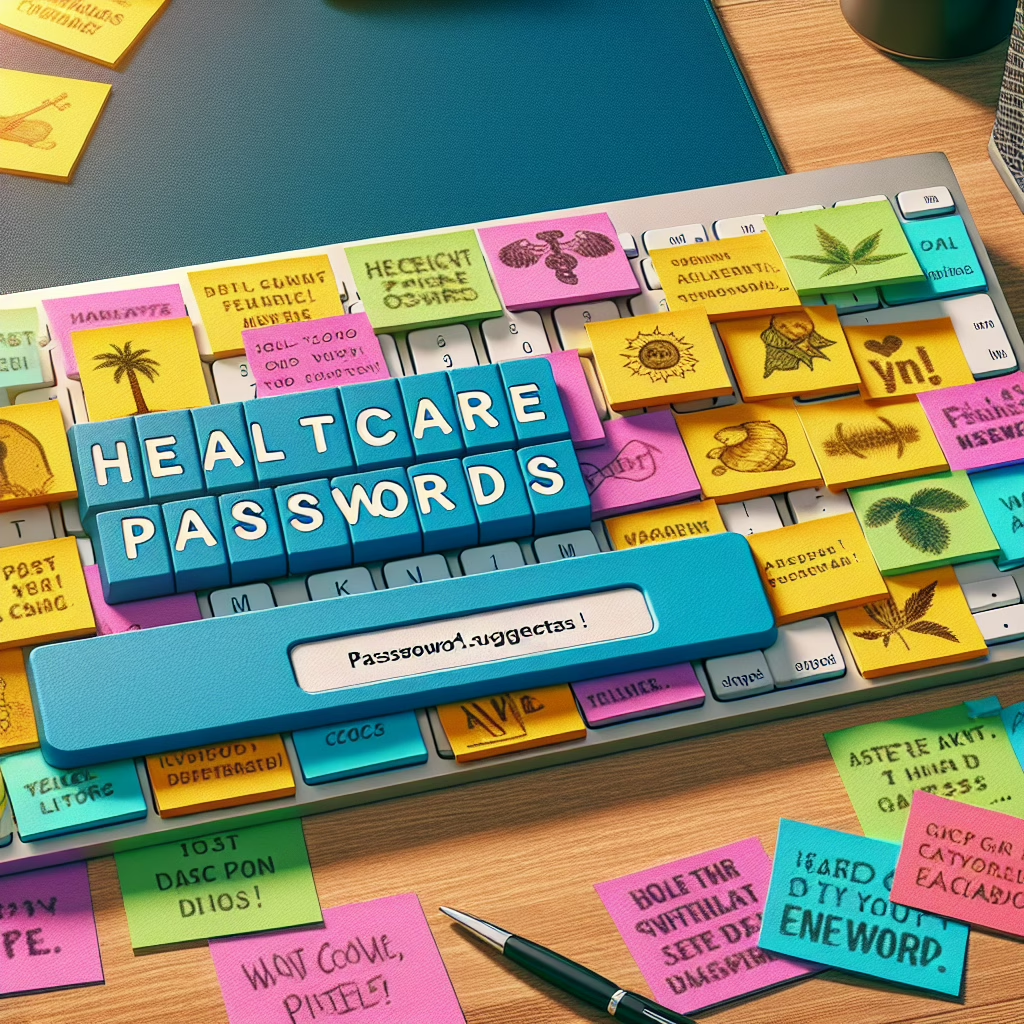In the world of healthcare, where your medical history is as sensitive as your grandma’s secret recipe, password security is a hot topic. With millions of patients possibly at risk due to poor password practices at healthcare organizations, it’s time to delve into how we can protect ourselves and our precious data. Let’s explore how to stay safe while having a chuckle or two along the way!
Why Passwords Matter in Healthcare
Imagine this: you walk into your favorite café, order a latte, and suddenly find out that your health records have been compromised because someone decided that ‘password123’ was an adequate defense. Spoiler alert: it’s not! In 2025, cybersecurity is no longer a luxury but a necessity, especially in the healthcare sector where personal information flows like coffee on a Monday morning.
Healthcare organizations often deal with sensitive information, making them prime targets for cybercriminals. A strong password isn’t just a suggestion; it’s your first line of defense against identity theft and data breaches. So, let’s break down what makes a password secure enough to withstand even the most persistent hackers.
Crafting Your Digital Fortress
To keep your healthcare data safe, you’ll want to craft passwords that are as unique as your taste in artisanal cheeses. Here are some tips:
- Length Matters: Aim for at least 12 characters. The longer, the better – think of it like building a wall with bricks instead of just stacking a few pebbles!
- Mix It Up: Use a combination of uppercase letters, lowercase letters, numbers, and special characters. A password like “P@ssw0rd!” is about as secure as using a paper lock on a vault.
- Avoid Personal Info: Your name, birthday, or pet’s name should be off-limits. Let’s face it; no one needs to know that Fluffy was born on July 4th when they’re trying to hack your account.
- Use Passphrases: Consider using a memorable phrase or sentence. For example, “I Love Eating Tacos Every Tuesday!” can transform into “ILETET!” – much harder to guess!
The Role of Healthcare Organizations
While you’re busy creating the ultimate password fortress, let’s not forget that healthcare organizations play a crucial role in this security saga. They need to step up their game too! Here are some ways they can help protect your data:
- Password Policies: Implement strict policies for employees regarding password creation and management. A little training can go a long way in ensuring everyone understands the importance of strong passwords.
- MFA – Multi-Factor Authentication: Encourage the use of MFA whenever possible. Because who doesn’t love an extra layer of security? It’s like putting on another pair of socks before heading out into the snow.
- Regular Audits: Conduct regular security audits and penetration testing. This can help identify vulnerabilities before they become real problems – think of it as having a safety net under a high-wire act!
The Power of Awareness
As patients, we must remain vigilant about our online security. Regularly updating passwords and being cautious about sharing personal information can make all the difference. Remember: if something feels off when you log into your healthcare provider’s site, trust your gut!
It might seem tedious to change passwords frequently or verify every login attempt with an extra code—but hey, better safe than sorry! Plus, if you ever need an excuse for forgetting someone’s birthday, just say you were busy securing your healthcare accounts!
Conclusion: Your Health Data Deserves Protection
Your health data deserves protection just like that last slice of pizza at a party! By employing strong passwords and urging healthcare organizations to adopt better practices, we can all contribute to keeping our information safe from prying eyes.
So what do you think? Are you ready to take charge of your digital safety? Share your thoughts below—after all, we could all use more ideas on how to keep our passwords sharp and secure!
For more insights on cybersecurity issues, check out our articles on cybersecurity tactics and protecting yourself from scams.

